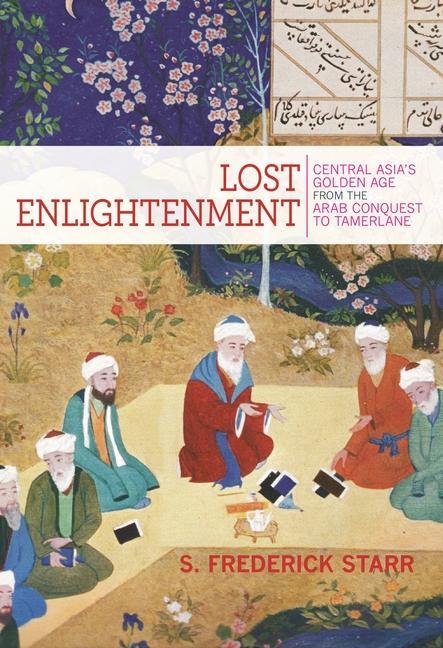"A fantastic book."--President Ashraf Ghani of Afghanistan
"Lost Enlightenment brilliantly re-creates for us the world of Central Asia, which for centuries was not a backwater but a center of world civilization. With a sure mastery of the large historical sweep as well as an eye for detail, Fred Starr has written an important book that will be a resource for years to come."--Francis Fukuyama, author of The Origins of Political Order
"For more than three hundred years the Islamic world exercised the scientific and philosophical mastery of Europe. With compelling urgency and lucidity, Lost Enlightenment tells the story of the rise and tragic demise of this golden age of Islamic learning in Central Asia. It is a story whose lesson we should never be allowed to forget."--Anthony Pagden, author of The Enlightenment: And Why It Still Matters
"From 800 to 1200, Central Asia was the world's most advanced civilization in the sciences, mathematics, medicine, law, and art. Starr's Lost Enlightenment thoughtfully explains this astonishing evolution and its end."--Henry A. Kissinger
"Fred Starr makes the most persuasive case yet that medieval Central Asia was a major center of civilization and high culture--and what a picture emerges."--Richard W. Bulliet, Columbia University
"Drawing on his vast knowledge and experience of Central Asia, Fred Starr provides a brilliant account of the history and culture of the land that produced some of the greatest Islamic scholars, scientists, saints, artists, and architects. Thanks to this book, the Central Asian enlightenment is no longer as lost as some might think."--Seyyed Hossein Nasr, George Washington University
"A delight to read, this is a fine survey of the intellectual and cultural history of Central Asia by a distinguished historian. By showing the remarkable discoveries in astronomy, mathematics, medicine, and other fields made by Central Asians from the earliest times, Lost Enlightenment is certain to surprise many readers by challenging traditional misconceptions of the region. The book's biographical approach makes for lively reading. Anyone interested in the Silk Roads will find it enthralling."--Morris Rossabi, author of The Mongols: A Very Short Introduction
"This ambitious and much-needed book will be an eye-opener for many readers. S. Frederick Starr shows that Central Asia, often viewed today as a backwater, produced some of the most outstanding minds of the Middle Ages."--Peter B. Golden, author of Central Asia in World History
Inhaltsverzeichnis
List of Illustrations ix Preface xiii Dramatis Personae xxi Chronology xxxi
Chapter 1 The Center of the World 1
Chapter 2 Worldly Urbanists, Ancient Land 28
Chapter 3 A Cauldron of Skills, Ideas, and Faiths 62
Chapter 4 How Arabs Conquered Central Asia and Central Asia Then Set the Stage to Conquer Baghdad 101
Chapter 5 East Wind over Baghdad 126
Chapter 6 Wandering Scholars 156
Chapter 7 Khurasan: Central Asia's Rising Star 194
Chapter 8 A Flowering of Central Asia: The Samanid Dynasty 225
Chapter 9 A Moment in the Desert: Gurganj under the Mamuns 267
Chapter 10 Turks Take the Stage: Mahmud of Kashgar and Yusuf of Balasagun 303
Chapter 11 Culture under a Turkic Marauder: Mahmud's Ghazni 332
Chapter 12 Tremors under the Dome of Seljuk Rule 381
Chapter 13 The Mongol Century 436
Chapter 14 Tamerlane and His Successors 478
Chapter 15 Retrospective: The Sand and the Oyster 515 Notes 541 Index 611










